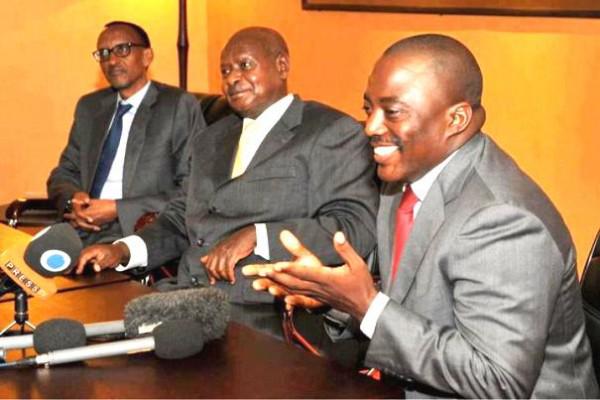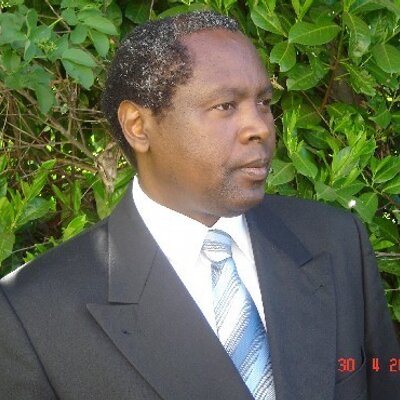(In their own words )

Paul Kagame (photo credit, WSJ): The Master of Ubwenge: “Able to set a house on fire, and had unimaginable capabilities to hide the smoke” (A Rwandan saying)…
Be shocked! Be baffled! Wake up! Remember, you’ve been victimized and made a fool by some Rwandan anytime you spoke to one: president of the US or a simple American citizen; a leader or a simple citizen of the whole world. Read on ladies and gentlemen:
All Rwandans in general, and Rwandan Tutsis, in particular, are liars from childhood.
“Let us (start) with this recent analysis by (the Rwandan) Shingiro Mbonyumutwa: ‘The use of manipulative lying has always constituted a primordial element used for conquest and as the power for domination in Rwanda. This strategic lying that consists of making up accusations against the other person in advance has nothing abnormal about it, it is only the continuity of the culture.’… Ubwenge, ‘(this) Rwandan form of intelligence’ was a shock to the Western explorers and researchers, including Rwandans, who studied it.” (From Gaspard Musabyimana’s “The Culture of Lying in Rwanda”).
However, it is not just any type of lying as the rest of the world knows about telling lies. For Rwandan Tutsis, lying is more than telling lies. It is a science, it is their culture, it is a way of life.
A Rwandan in exile, Gaspard Musabyimana cited above and living in France, tried to define this science, this culture, this “Ubwenge” as it is called in Kinyarwanda (the language spoken by both Tutsis and Hutus in Rwanda solely). He wrote, in the above-cited document:
“The culture of lying (telling lies) called Ubwenge is, in Rwanda, an undeniable cultural fact. The manifestations of this culture can be observed even today. This word has no equivalent in French. Its meaning combines together the French words for intelligence, lies, cunning or deviousness, shrewdness, duplicity, concealment or cover-up, and treachery” (intelligence, mensonge, ruse, malignité, duplicité, dissimulation, et fourberie).
For Rwandans in general and Rwandan Tutsis in particular, telling lies is part of their being, in the larger sense given in the definition above, it is, for them, a positive asset, a trait they are proud of, and a practice that they brag about among themselves.
Here is how their philosophers put it:
“… If the Mututsi (one Tutsi, plural Batutsi) acknowledges that the European is competent in the technical field – electricity, physics, mathematics, etc., – if the Mututsi acknowledges the European possessing the intelligence of the book (ubwenge bwo mu gitabo), the Mututsi deplores the European’s lacking shrewdness or wit. Knowing how to distort and disguise the truth, how to deceive without arousing any suspicion is a science that the European lacks and that the Mututsi is very proud to possess; the genius of plotting and the art of lying are, in the eyes of the Mututsi, arts for which he prides himself about: this is the uniqueness of the Mututsi and, by contagion and as defensive reflexes, the uniqueness of every Munyarwanda (Rwandan national).” (By a Tutsi philosopher and a Catholic priest, Stanislas Bushayiga, who was boasting, in 1958, about the superiority of the Rwandans and their culture – science – of Ubwenge over the Europeans). (G. Musabyimana).
“White people are not intelligent…”
Another Rwandan philosopher, perhaps one of the preeminent Rwandan philosophers, Monsignor Alexis kagame, who wrote about and frequently compared, in the 1950’s, this Rwandan “intelligence” to the European (or Western) form of intelligence, he used to state, speaking about… “… the Europeans and all whites in general that ‘…the Whites have knowledge, but they are not intelligent.’” (G. Musabyimana).
Which “intelligence” is Monsignor Alexis Kagame talking about? The one underlined above and spoken of by Stanislas Bushayiga: “Knowing how to distort and disguise the truth, how to deceive without arousing any suspicion is a science that the European lacks and that the Mututsi is very proud to possess.” Former Presidents Clinton, Bush, and Obama and most goodhearted Americans know something about this “science”, unless they are still imprisoned in Ubwenge…
Rwandans are the only people on earth who do not believe in the truth. A saying, in the language of Kinyarwanda goes, “Ukuli Kurazirwa” (The truth kills). From infancy, the child is taught to never tell the truth and all the techniques and the manners of telling lies without ever arousing any suspicion is drilled into the male and the female child. In other words, the world has been victimized by Rwandans, especially since the 1990’s.
“In 1940, Paul Dresse, one of the Belgian administrators in Rwanda, wrote a book in which he describes the Art of Lying among Tutsis: ‘The Tutsis are unique in their obsession with pretending… But, this disposition favors also duplicity and this is what makes this race one of the greatest liars that one can find under the sun. … the art of lying is not something that is purely verbal. The face, the entire body must accompany the ‘veracity’ of the speech” (G. Musabyimana).
Americans, Europeans, Asians, Africans, the world has fallen victim to this “science” and, even today, heads of states, governments, media, and citizens of the world are still being victimized by this “Art of Lying,”… thinking and believing that the Rwandans’ seemingly sincere show of emotions and tell-tales of (“disguised and distorted”) horrors that, in the most part, are twisted to impress, are the real truth, whereas it was simply Ubwenge, the first nature of Rwandans.
Antoine Nyetera, a Tutsi prince who died in 2012, was one of the Tutsis who truly became a Christian like Kizito Mihigo – the young genocide survivor who sang of justice and reconciliation between all Rwandans and even between Rwandans and Congolese, and who was murdered by Kagame – so, Nyetera saw the peace negotiations of Arusha in 1993 between the Tutsi rebels of the RPF (Rwandan Patriotic Front) from Uganda who were led by Paul Kagame, and the official and elected government of Rwanda that was led by President Habyarimana, a Hutu.
This is how Antoine Nyetera relates how America, Europe, Australia, and Asian countries that made up “The International Community” and the “Peace Facilitators”, how they were lied to without any of these nations’ leaders or their representatives ever suspecting that these Rwandans (Tutsis and Hutus) were lying to them, rolling them like chicken legs in the flour of Ubwenge:
“At the end, the biggest lie by the RPF (Kagame’s Rwandan Patriotic Front) was to make the International Community believe that it wanted to participate in the Peace Accords that were negotiated in Arusha, and that it was interested in power sharing through elections. The International Community, the foreign governments called the “Facilitators” contributed large sums of money in order to support these negotiations; while the RPF, on its side, had no intention that these negotiations succeed. Louis Claes, the then-Foreign Affairs Minister of Belgium declared before the Belgian Senate Inquiry which wanted to obtain more information about the events that took place in Rwanda, that in early 1994, he had met RPF leaders in Kampala who declared to him that they were not going to participate in the expanded transitional government that was demanded in the accords that both parties had signed in 1993.”
Recently, a writer and a journalist with over 20 years of covering Africa, Michela Wrong, who had reported from the African Great Lakes region for Reuters, BBC, the Financial Times, including, from Congo-Zaire from 1994 onto the removal of President Mobutu Sese Seko in 1997, has written a book about the assassination of a Rwandan Tutsi officer by the Rwandan Tutsi President Paul Kagame (she has published 3 non-fiction books and a novel) titled Do Not Disturb, The Story of a Political Murder, and an African Regime Gone Bad, that deals with the murder of Colonel Patrick Karegeya, one of the main characters in the Rwandan Tutsis’ rebellion and overthrow of the Habyarimana regime in 1994. A close associate of Paul Kagame, Karegeya was murdered in South Africa on direct orders of the same Kagame. In an article in The Literary Hub which promoted the book, she published an excerpt titled “The Virtue of Lying? Unmasking the Truth About the Rwandan Genocide”. In it Michela Wrong writes:
“Look up the word Ubwenge in a Kinyarwanda dictionary and the translation reads ‘wisdom’ or ‘sense.’ But it can also be translated as ‘cunning,’ ‘deception,’ a quality Rwandan children are encouraged to develop, seen as the ultimate sign of maturity. It goes hand in hand with the concept of Intwari, which French historian Gérard Prunier defines as ‘the quality of impassivity, aloofness, being beyond and above events, implacable.’”…
And this is how, according to Michela Wrong, did those journalists, reporters, politicians, and NGO’s who were unaware of Ubwenge, view the Rwandans:
“These were men supremely skilled at seduction, intellectual, emotional, or sexual. American diplomats weary of negotiating with sleazy Great Lakes politicians thrilled at the puritanism of these thin, driven young men in camouflage. NGO workers who were new to Africa’s Great Lakes listened to their tales, hearts pounding with sympathy and outrage—initially, at least. Reporters, photographers, and filmmakers became lifelong friends or ended up jumping into bed with them. Intensity, along with imminent danger—and the Great Lakes has always been a dangerous place to live and work—is one of the great aphrodisiacs.”…
Today, after these many years, the world must needs to reassess its blind support for Rwandan Tutsis who, as their philosophers said, especially toward white people, in general, that they hold them in contempt and mock, laugh at, or make fun of them among themselves that “they have knowledge by they are not intelligent”; or, as Michela Wrong wrote,
“Throughout the writing of my book about the murder of Patrick Karegeya, I kept thinking about the Epimenides paradox. The one that runs: “‘All Cretans are liars,’ says Epimenides,… the Cretan.'” It came to mind because Rwandans kept telling me that deceiving others, being economical with the truth, was something their community reveled in, positively prided itself upon.Especially when dealing with Western outsiders. A proof of superiority, not shame, when successfully achieved. So much so, that the practice had worked itself into the language. ‘Naïf comme les blancs’ (Naive as the white folk), Rwandans will say of someone, in the same way that other cultures will say ‘as thick as two short planks‘ or ‘as dumb as a post'”.
“One of Rwanda’s prime ministers, Agathe Uwilingiyimana, shocked the head of a UN peacekeeping force by telling him: ‘Rwandans are liars and it is a part of their culture. From childhood they are taught to not tell the truth, especially if it can hurt them.’… A successor told me the same thing over coffee in a Brussels hotel lobby many years later: ‘In Rwanda, lying is an art form. When you, as a white journalist, leave a meeting, they will be congratulating themselves: “We took her for a ride.” Lying is the rule, rather than the exception.”…
Then, lastly, a Rwandan Tutsi PhD in Political Economy, David Himbara, who has worked and lectured all over the world and worked for Paul Kagame’s regime twice and, in the end, had to run away for his life and now lives in Canada where the Canadian government protects him, wrote an article in Medium.com titled “Kagame’s Rwanda is a Serial Lying Nation”, in which he demonstrates the subject of the title of his article, that Kagame’s Rwanda has been lying all along about its economic miracle. This same Dr. Himbara testified at a hearing in the US House of Representatives that one of the reasons Kagame wanted him dead because he resisted Kagame’s orders for him to publish lies about Rwanda’s economic data… Actually, as Antoine Nyetera quoted above said, since the 1990’s, world leaders have been lied to, and, today, as Michela Wrong writes in her article, these leaders do not dare come out and admit and denounce the lies told them by Rwandan Tutsis, including their leaders, beginning with Paul Kagame, having been victimized by “a culture that glories in its impenetrability, that sees virtue in misleading”, as Ms. Michela Wrong writes…
To the Tutsis, as Monsignor Alexis Kagame wrote, these world leaders and their people “are not intelligent!”
For the sake of grasping the full picture of the murderous nature, beside Ubwenge, of these Tutsis of the Kagame regime since the1990’s in both Rwanda and the Congo-Zaire, here are two books whose authors have faced assassination threats and attempts from these Tutsis even though they do not live in Rwanda: In Praise of Blood, by Judi Rever from Canada, and “Joseph Kabila”, Identity Thief, Impostor, and Rwandan Trojan Horse in Congo, by Yaa-lengi Ngemi from the United States of America.
PS: The American Congolese Council is the group, in the US, campaigning for the DRC.






